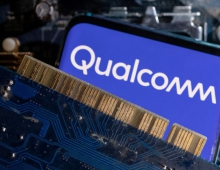
Qualcomm Lost U.S. Antitrust Ruling
A U.S. judge on Tuesday ruled that Qualcomm violated antitrust law by abusing its dominant position in the market for cellphone chips to exact excessive licensing fees from phone makers and suppress competition.
U.S. District Judge Lucy Koh sided with the Federal Trade Commission in a case brought in 2017 accusing the company of anti-competitive practices. The ruling comes one month after Qualcomm and Apple struck a settlement in a similar lawsuit brought by the iPhone maker, which agreed to continue paying the licensing fees.
She ordered the San Diego-based company to renegotiate licensing agreements at reasonable prices, without threatening to cut off supplies, and ordered that it be monitored for seven years to ensure its compliance.
“Qualcomm’s licensing practices have strangled competition” in certain modem chip markets “for years, and harmed rivals, OEMs and end consumers in the process,” the judge wrote. She also found that Qualcomm charged high royalties for its patents, and that its key role in manufacturing modem chips for smartphones using 5G made it likely that its behavior would continue.
The ruling challenges Qualcomm’s business. The company makes cellphone processors and modem chips, but generates most profits by licensing its technology to mobile phone makers.
Qualcomm said it will immediately seek a stay of the district court’s judgment and an expedited appeal to the U.S. Court of Appeals for the 9th Circuit.
The company said it “strongly disagrees” with the ruling and will seek an immediate stay and appeal. “We strongly disagree with the judge’s conclusions, her interpretation of the facts and her application of the law," said Don Rosenberg, executive vice president and general counsel of Qualcomm.
Qualcomm tried to resolve the FTC’s claims starting months before the case went to trial.





















